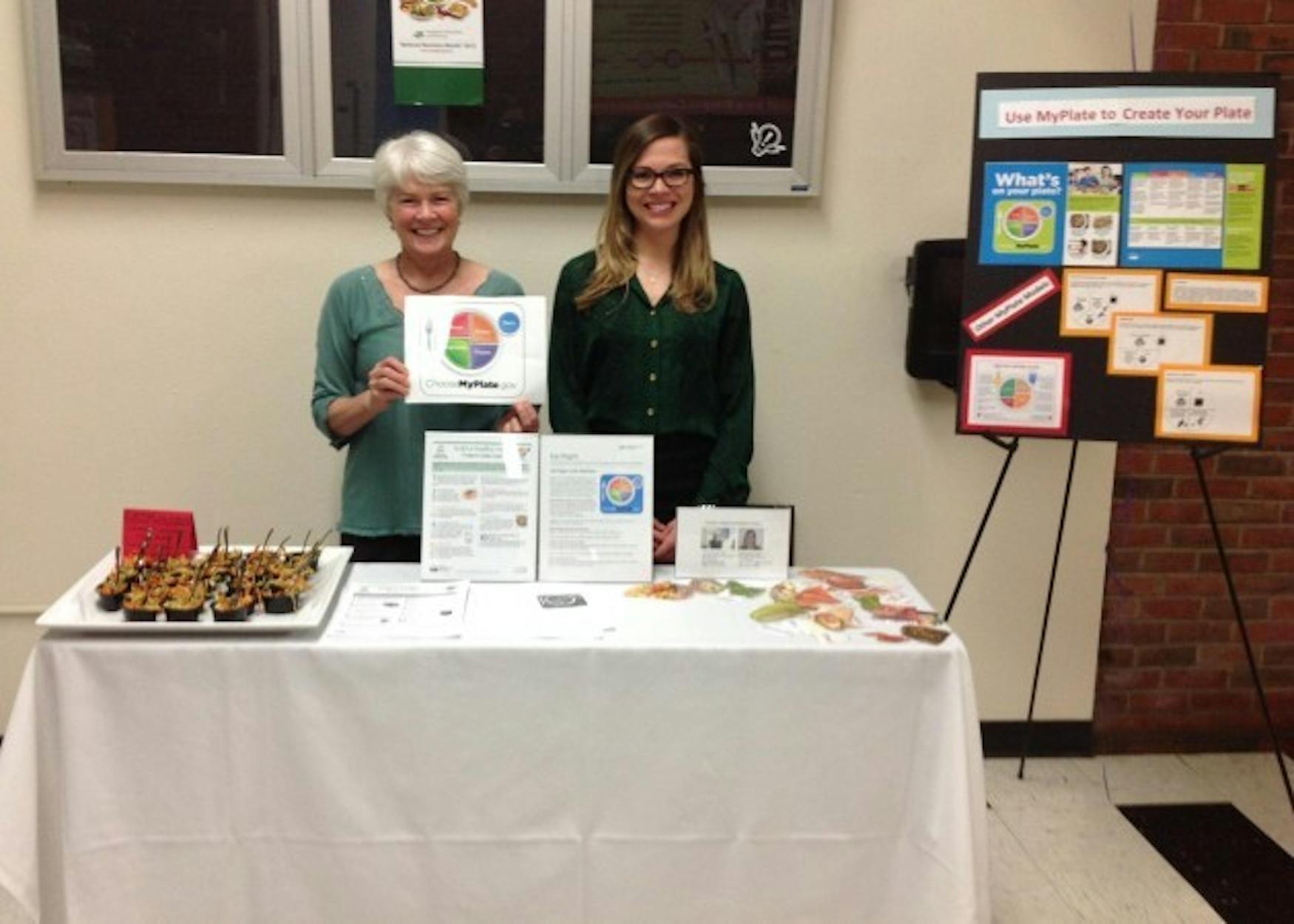Navigating nutrition
Dietary advice makes eating on a dining meal plan manageable
Whether it's going to the Usdan Boulevard for an Asian chicken wrap for dinner or grabbing a quick bagel with lox at Einstein Bros. Bagels, Brandeis students get their food (and nutrients) from a few main places, so the significance of having both satisfying and healthy options on campus is immense for those on a meal plan.
Knowing what to eat, however, can be tricky. Golding Health Center Nutritionist Laura O'Gara recognized the need for better nutrition education on campus and a couple of years ago proposed the idea of hiring an Aramark Registered Dietician, to the administration. "Because I'm not an Aramark employee, I was not able to deliver the specific information to the students that they were interested in because physically, my office is not [in the dining halls]," O'Gara explained.
To solve the problem, they hired Katherine Moran, who received her degree through Framingham State University. One of Moran's chief priorities as dietician is consulting with the chefs on campus and dining services. "If students ask, 'I really want this' or 'We don't have that', I have direct access to all of that, so it's easy for me to answer those questions," Moran said.
Moran described how their roles fill in the other's gaps to provide comprehensive guidance. O'Gara uses medical information and can help students figure out a diet satisfactory for them based on their medical needs at the health center. O'Gara can then share that kind of information with Moran and help the student with what they want to eat.
Moran and O'Gara's presences are also felt through other resources on campus, helping with organizations such as the Student Advisory Council, Brandeis University Health and Fitness and the Senate Dining Committee.
Since coming to Brandeis, Moran has completed a "healthy options assessment" in Usdan and both sides of Sherman Dining hall, giving suggestions to them for having certain items. For example, instead of plain pizza, whole-wheat and low-fat mozzarella pizza are now offered in Usdan and Sherman.
This is part of Aramark's "Healthy for Life" initiative, its "commitment to improve the health and academic potential of our students," according to its website. To implement this idea on campus, Moran suggests using MyPlate, the replacement for the food pyramid of how to regulate portion control and well-balanced meals, at dining locations like Sherman. "If people want to do this in their life, we can make it happen for them," Moran said.
In addition to Moran and O'Gara's routine coordinating efforts, they teamed up for Registered Dietician Day, which took place last Wednesday as part of National Nutrition Month.
Throughout lunch and dinner, Moran and O'Gara walked up to students informally in Sherman and Usdan, explaining how they can serve Brandeis students and passing out various handouts with healthy tips. "It was cool that she was trying to connect with students and say she was a resource here," Ruairi Smith-Dewey '13 said.
Not all students, though, are satisfied with nutrition on campus today. Many are unhappy with the availability of options and freshness, prices at locations and dining location hours. "Not everyone on a meal plan has enough points or can afford the food that might be healthier for you. Students will end up picking the foods that are bad for them," Nusrath Yusuf '13 said.
Heleena Mathew '15 is frustrated with the lack of quality in healthy foods. "Recently, I've been trying to eat much healthier, and I've realized it's incredibly difficult. The only healthy thing I enjoy is the salad bar, but even that occasionally isn't fresh. ... It's very expensive to eat healthy," she said.
The frustration is true of both domestic and international students. Aramark and the University are conscious of the dietary needs of students such as those who have gluten-free allergies or are lactose intolerant, but some, like Chen Liang '14, feel the diets of students of various cultural backgrounds are deemphasized.
"I'm an international student, so I'm not used to all raw vegetables and salads. Sometimes, I like it cooked. But sometimes there's a limited choice. I found myself walking around lower Usdan not being able to find anything I liked," Lai explained.
Even when it's not RD day, there are ways of making these students' grievances heard. In Sherman and Usdan, areas are set up where students may write down their concerns.
"The management team is reading those, and they're being answered," Moran said. The management team will seek Moran's help when needed, and as a team, she'll work with them and the executive chef to react to suggestions and complaints.
Moran understands how difficult it is to eat healthy while upholding a busy undergraduate career. "College is different because you have all of this food available all the time." Moran said. "It's not like the kitchen's closed."
Students and staff alike will have to reach out to one another and communicate in order to effectively bring the nutrition on campus today to the high standards we all desire.
"There's a lot going on. Food's not the only thing you're going to think about here. But unfortunately, you have to think about it every day. Everyone has to," Moran said.



Please note All comments are eligible for publication in The Justice.